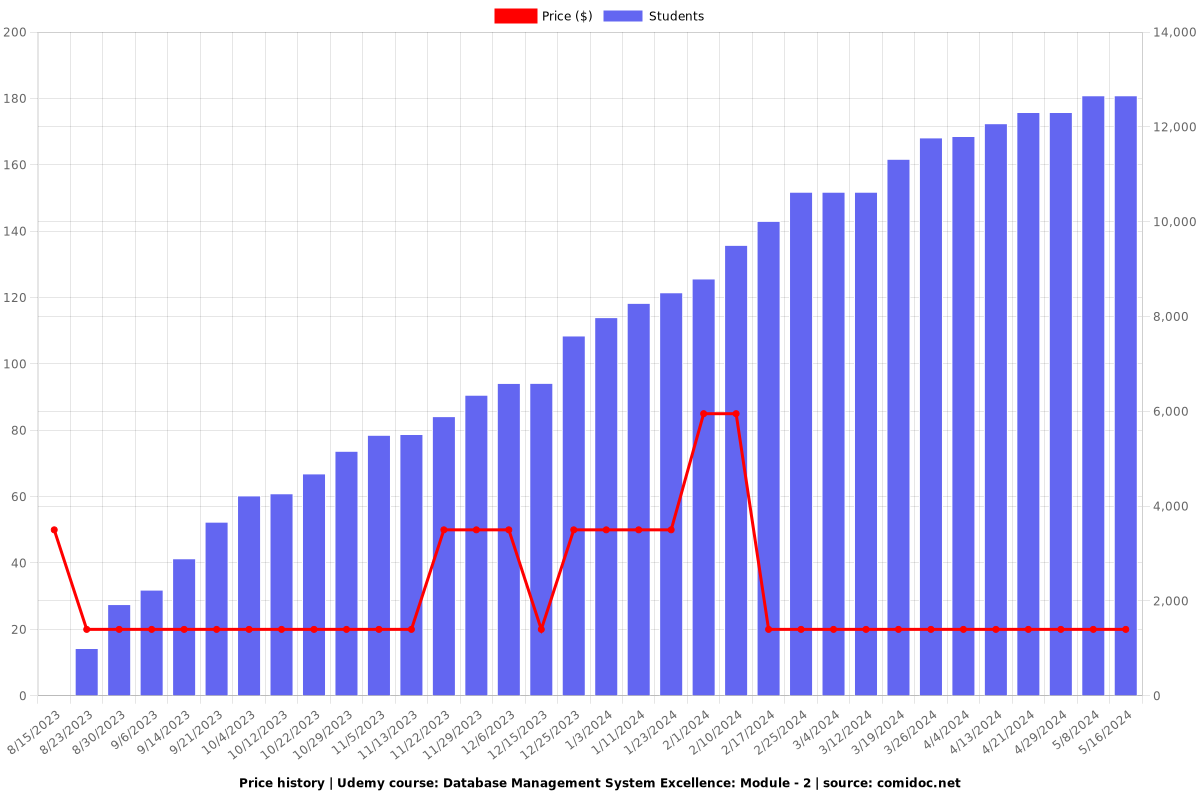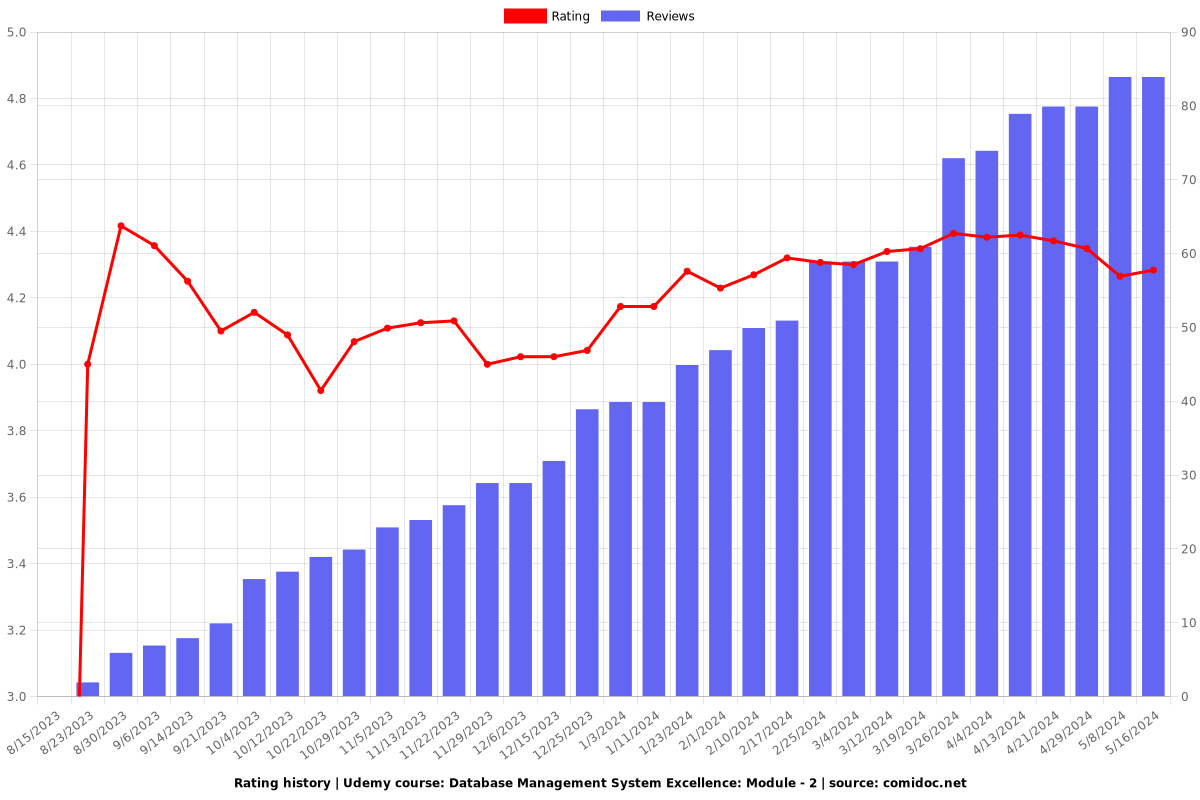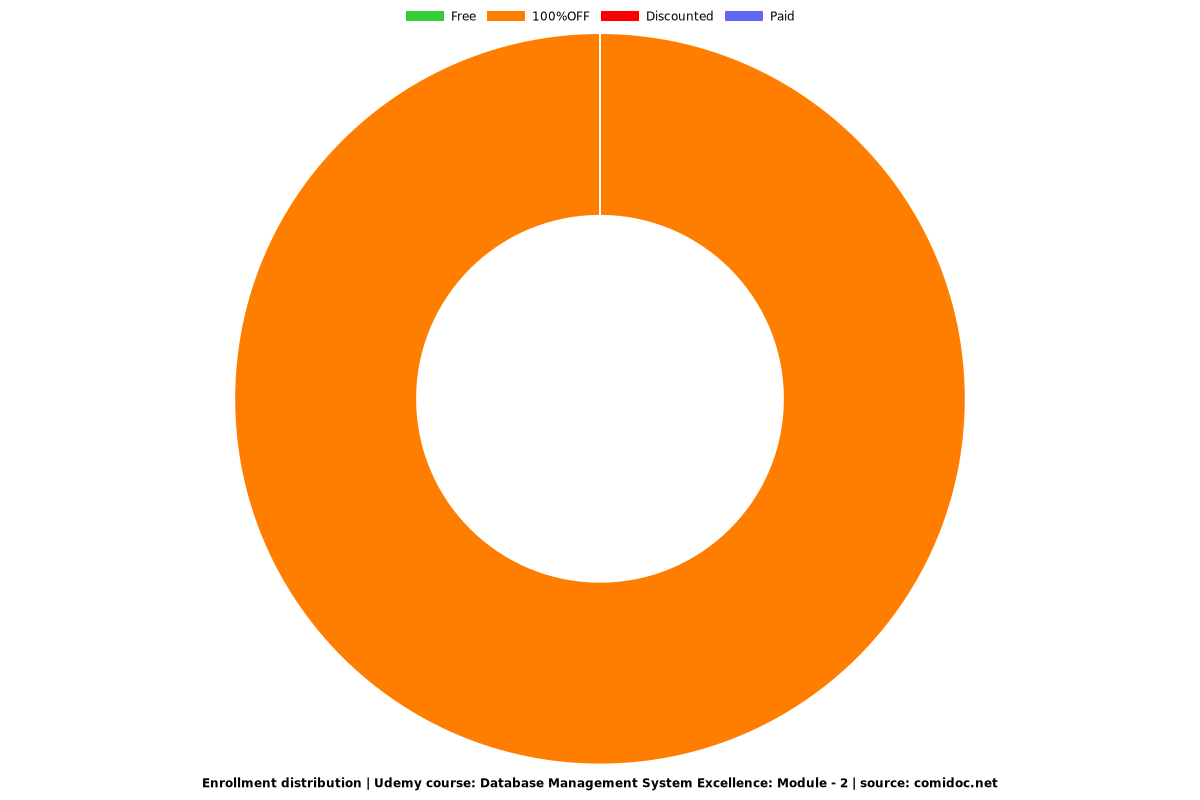Database Management System Excellence: Module - 2
Taking Your Database Skills to the Next Level with real world examples.
4.28 (84 reviews)

12,658
students
1 hour
content
Oct 2023
last update
$19.99
regular price
What you will learn
What is the meaning of DBMS?
What are the various functions performed by DBMS?
What is meant by Database Servers?
What are the various types of Database Servers?
Whether a database server can host only one type of database?
Why take this course?
📚 **Course Title:** Database Management System Excellence: Module - 2
🚀 **Course Headline:** Taking Your Database Skills to the Next Level with Real-World Examples 🌟
**Introduction:**
Welcome to the second module of our Database Management System (DBMS) Excellence course! In this module, we'll delve deeper into understanding the intricacies of DBMS, its applications, and the technicalities involved in managing databases at scale. Whether you're a business professional looking to leverage data effectively or an aspiring database administrator aiming for mastery, this course will equip you with the knowledge and skills necessary to navigate the complex world of database management.
**Course Description:**
- **Understanding DBMS:**
- 📚 **Full Form of DBMS:** Database Management System (DBMS) is a software system designed to store, manage, retrieve, and manipulate databases.
- **Database Management System Explained:**
- A DBMS is a crucial tool for data organization, allowing users to create, read, update, and delete data efficiently. It provides a systematic approach to data storage and retrieval, making it easily accessible and secure.
- **Benefits of DBMS:**
- DBMS offers numerous benefits such as data integrity, security, concurrent access, and easier data retrieval, which are indispensable for modern businesses.
- **Concurrent Data Access & Controlled Access:**
- 🤝 DBMS ensures that multiple users can access the database without compromising data accuracy and consistency. Controlled access means that only authorized users can make changes to the data, maintaining its integrity.
- **Various Uses of DBMS:**
- From e-commerce transactions to healthcare patient records, DBMS is integral to a wide array of business activities, enhancing operational efficiency and decision-making processes.
- **Functions Performed by DBMS:**
- A DBMS performs several critical functions, including data validation, backup and recovery, and transaction processing, ensuring smooth and uninterrupted database operations.
- **Data Manipulation:**
- Data manipulation refers to the process of entering, updating, deleting, or retrieving data in a database system.
- **Storage Devices for DBMS:**
- DBMS typically stores data on various storage devices like SSDs, HDDs, and cloud storage solutions, each with its own set of advantages.
- **Performance Optimization Techniques:**
- 🔧 Common techniques include indexing, query optimization, and proper database design to enhance the performance of DBMS.
- **Data Sharing & Collaboration:**
- DBMS enables data sharing among users, facilitating real-time collaboration across different geographical locations.
- **Support for Database Administrators (DBAs):**
- 👩💻 DBMS provides tools and features to DBAs for efficient management, monitoring, and maintenance of the database systems.
- **Database Servers:**
- A database server is a software or hardware system dedicated to managing databases and providing database services to clients.
- **Function of Database Servers:**
- Database servers handle client requests for database operations and execute them efficiently, ensuring high availability and performance.
- **Client-Server Model:**
- 🌐 The client-server model is a foundational concept in DBMS, where clients request data, and servers provide the data through network communication.
- **Database Server Hardware Components:**
- Key hardware components include CPUs, memory, storage, networking equipment, and sometimes dedicated GPU or FPGA for specific database services.
- **Cooling Systems & Database Servers:**
- Adequate cooling is essential to maintain optimal temperatures and prevent hardware failure due to overheating.
- **Hardware Requirements for DBMS:**
- More powerful hardware, with faster CPUs and more memory, is often required as databases grow in size and complexity.
- **Software Components of Database Servers:**
- Common software components include database engines, management tools, security protocols, and backup utilities.
- **Types of Database Servers:**
- Databases can be centralized or distributed, each serving different organizational needs based on size, complexity, and geographical spread.
- **Distributed Database Servers & Data Growth:**
- As an e-commerce company expands, a distributed database server setup can handle the increased data and workload by spreading the load across multiple servers.
- **Issues with Unavailable Servers:**
- If a server fails, it's crucial to have failover mechanisms and recovery plans in place to minimize downtime and data loss.
- **Operational Database Servers:**
- Operational databases are used for transactional workloads, focusing on quick response times and high availability.
- **Cloud-Based Servers:**
- ☁️ Cloud-based servers offer scalability, flexibility, and cost-effectiveness, allowing customers to leverage powerful computing resources without managing physical hardware.
- **Scalability & Database Servers:**
- Organizations looking for scalability would opt for cloud-based or distributed database servers that can scale resources up or down as needed.
- **Sharing Data with Multiple Departments:**
- A shared database server allows multiple departments within an organization to access and manage data collaboratively.
- **Factors to Consider When Choosing a Database Server:**
- Factors such as cost, performance, scalability, security, and support should be carefully considered when selecting the right database solution for your business.
Understanding these concepts is crucial for anyone involved in managing or utilizing database systems effectively. Whether you're a DBA, a developer, or a business leader, knowledge of these aspects will help you make informed decisions about how to store, protect, and retrieve data efficiently and securely.
Charts
Price

Rating

Enrollment distribution

5502912
udemy ID
8/15/2023
course created date
8/15/2023
course indexed date
Prabh Kirpa Classes
course submited by